Book of the Day Roundup November 4-8, 2019
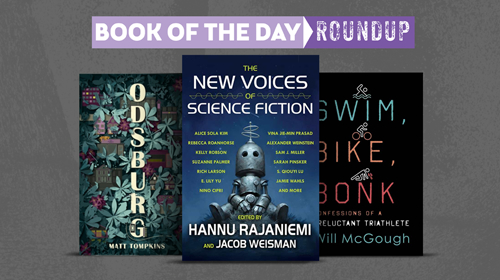
From Farmworker to Astronaut / De campesino a astronauta
My Path to the Stars/ Mi viaje a las estrellas
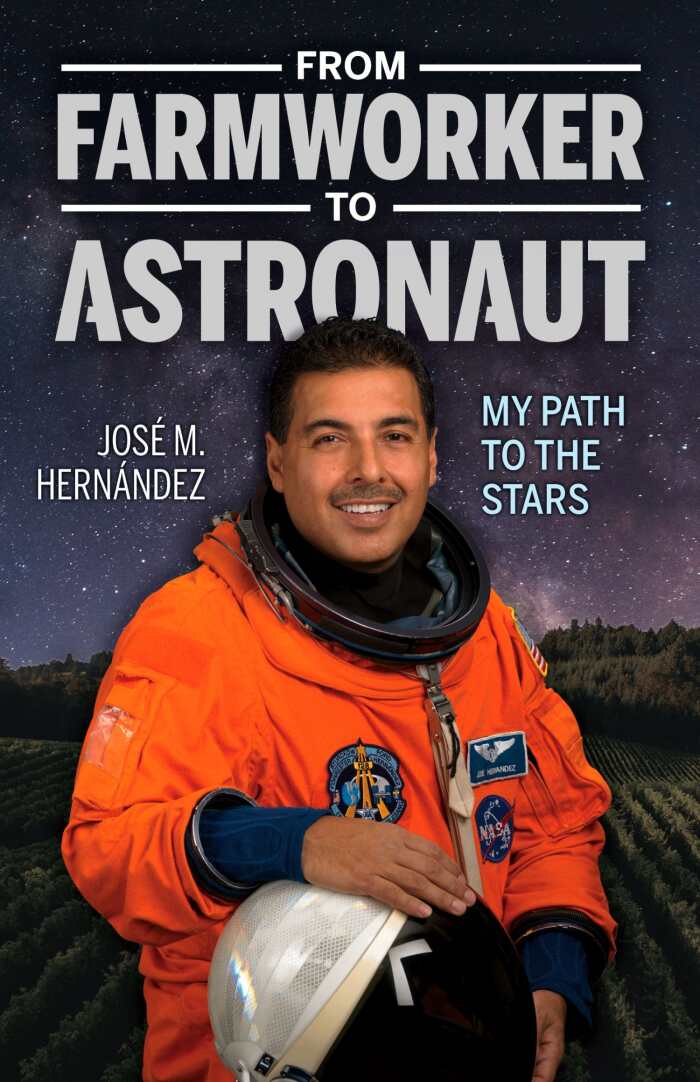
José M. Hernández
Darío Zárate Figueroa, translator
Arte Publico Press
Softcover $10.95 (384pp)
978-1-55885-868-8
Buy: Local Bookstore (Bookshop), Amazon
José M. Hernández’s From Farmworker to Astronaut layers two narratives: first, the saga of Hernández’s trip to the International Space Station, and second, his childhood, early adulthood, and work to qualify to be an astronaut.
With clarity, humility, and passion, Hernández recalls a childhood marked by family love and hard work. The Hernándezes migrated as farm workers, splitting their time between Mexico and California, picking many fruits and vegetables. Hernández’s parents valued education, and a remarkable teacher helped to convince them to make a permanent home in California so that their children could pursue long-term opportunities.
Hernández’s trip to space is covered down to technical details, and the narrative is nail-biting, exciting, and comprehensible. Details like having to drink lots of fluid to help with the return to Earth give the trip texture and life. Engaging in detailing the level of preparation that the astronauts undergo, the book shows that they run through so many potential problem scenarios that nothing can surprise them.
The core philosophy of the Hernández family runs throughout: their five-step recipe for success. It includes charting a path to a goal, getting the education needed to achieve it, and working hard to exceed all expectations. Hernández adds a step to the recipe about not giving up: he had to apply to be an astronaut twelve times, and bettered his chances each time with new experiences and training. The story doesn’t lean top heavily on its philosophy, but it still forms as a core takeaway for anyone with their own lofty goals, inspiring them, too, to achieve their dreams.
From Farmworker to Astronaut is an inspiring, hopeful memoir in which humble beginnings lead to an unforgettable, once-in-a-lifetime opportunity.
LAURA LEAVITT (October 27, 2019)
They Will Drown in their Mothers’ Tears
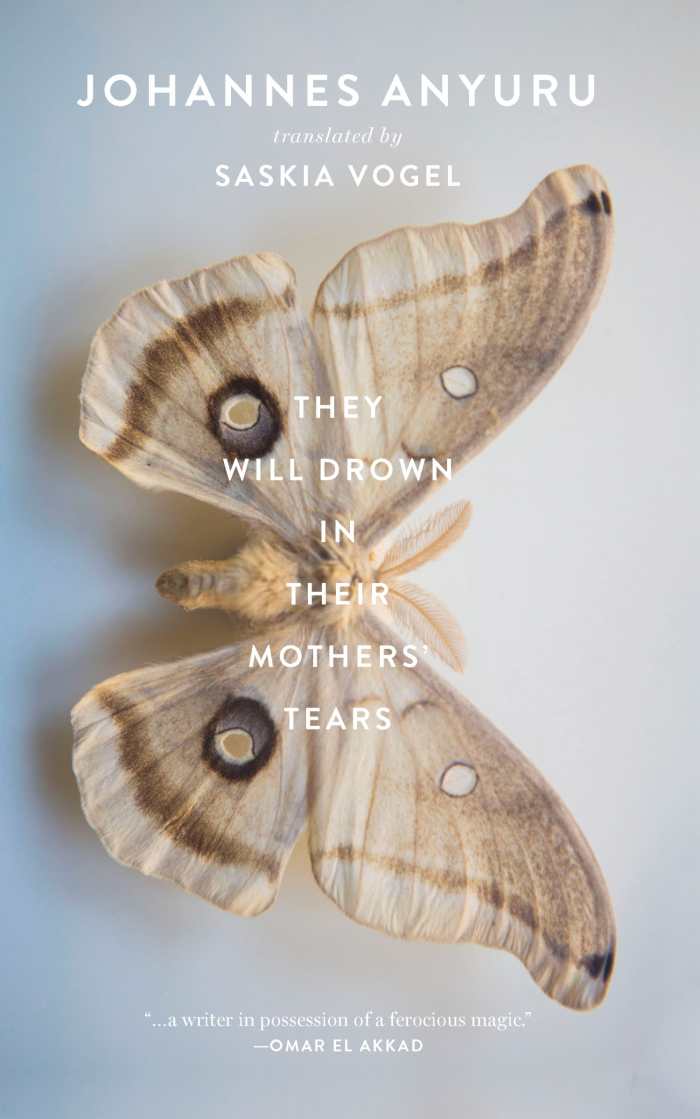
Johannes Anyuru
Saskia Vogel, translator
Two Lines Press
Hardcover $22.95 (272pp)
978-1-931883-89-4
Buy: Amazon
Johannes Anyuru’s stunning They Will Drown in Their Mothers’ Tears is a rare, powerful multiverse novel that reflects the best and worst of human potential.
Pushed from a bridge by a fascist, the young woman’s mother declares “There is no God.” The girl’s center is lost. But then: “There is no God but God.” Each one of the novel’s heartbreaking truths and possibilities flourishes in the gap between what might have been heard as a disavowal of faith and the mother’s last strained utterance of the shahada.
After this dual pronouncement, the girl and her father’s fight fades away. They are unsurprised when they’re carted off to the Rabbit Yard, a makeshift camp for supposed enemies of the state. Next come moths fluttering across images that are at the same time current and past, and a terrorist act in a comic book store that, for the girl, is a memory, though she finds that the bomb is strapped to her own chest this time. Everything is wrong.
The girl knows that images from the terrorist attack will be used to justify fascism and genocide. But she’s both the girl from the Rabbit Yard and the terrorist’s wife, a girl who woke up one morning with a story about a prison camp, wearing someone else’s face. In the moment where her memories meet her present, she makes a desperate play to save those she loves.
Narrated in and out of time to a Muslim writer for whom Sweden’s slide toward fascism is frightening but surreal, the girl’s story is full of hard revelations, including that those who want to justify genocide will always find a way, whether bombs go off or not. Only love can subvert such impulses; only it can fill the spaces between times and realities.
They Will Drown in Their Mothers’ Tears, with its final revelation that is as dismaying as it is triumphant, is gorgeous, unforgettable speculative fiction.
MICHELLE ANNE SCHINGLER (October 27, 2019)
Swim, Bike, Bonk
Confessions of a Reluctant Triathlete
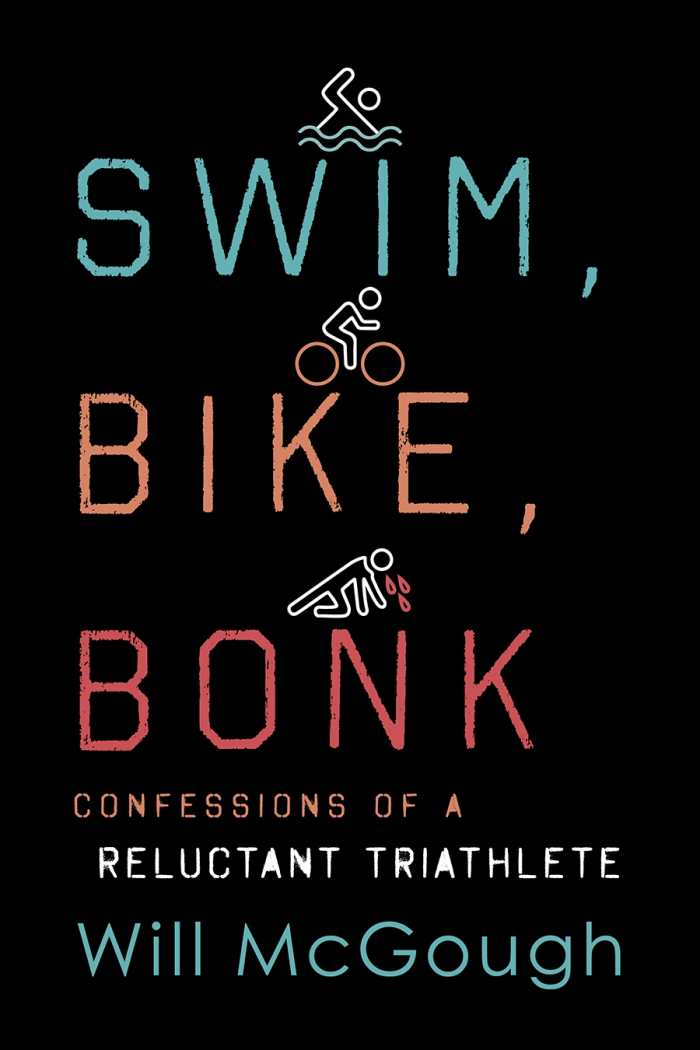
Will McGough
Lyons Press
Hardcover $24.95 (320pp)
978-1-4930-4162-6
Buy: Local Bookstore (Bookshop), Amazon
Will McGough’s irreverent memoir Swim, Bike, Bonk is about surviving the Ironman triathlon.
The Ironman involves 2.4 miles of swimming, 112 miles of cycling, and 26.2 miles of running. It is an epic race attempted by only the most elite athletes…and adventure seekers like McGough. He shocked his friends, family, and body by signing up for the race though he was woefully unprepared. In diary format, McGough shares his story of training for the Ironman, undertaking the race and recovering from it, and processing his experience.
The story of this impossible adventure is captivating. McGough is about as unlikely a hero as they come. Previous to beginning his training, his longest run ever was eight miles, and he only had three months to train. While he is sometimes reluctant, more often his voice brims with gung-ho, foolhardy, youthful bravado, plus generous doses of self-deprecation. McGough’s humor shines throughout, but most in his unselfconscious presentation of the physical toll that the race takes, including the difficulty of pee breaks when certain extremities have gone numb and the dreaded chafing of, well, everything.
A foreword by the winner of the first Ironman race in 1978, Gordon Haller, is an insightful addition, sharing memories of his race and the way the sport has changed in the decades since. The book reverberates with one question: Why? Why on earth would you do this? It’s a question that McGough wrestles with throughout his training and even after the race, both for himself and on behalf of the many others who tackle it. While possible answers are many, the book reveals a universal truth: in the face of insurmountable odds, basic questions have answers that are hardly simple.
Frightening in its honesty, Swim, Bike, Bonk is an inviting personal story of a quest to complete the Ironman triathlon.
MELISSA WUSKE (October 27, 2019)
The New Voices of Science Fiction
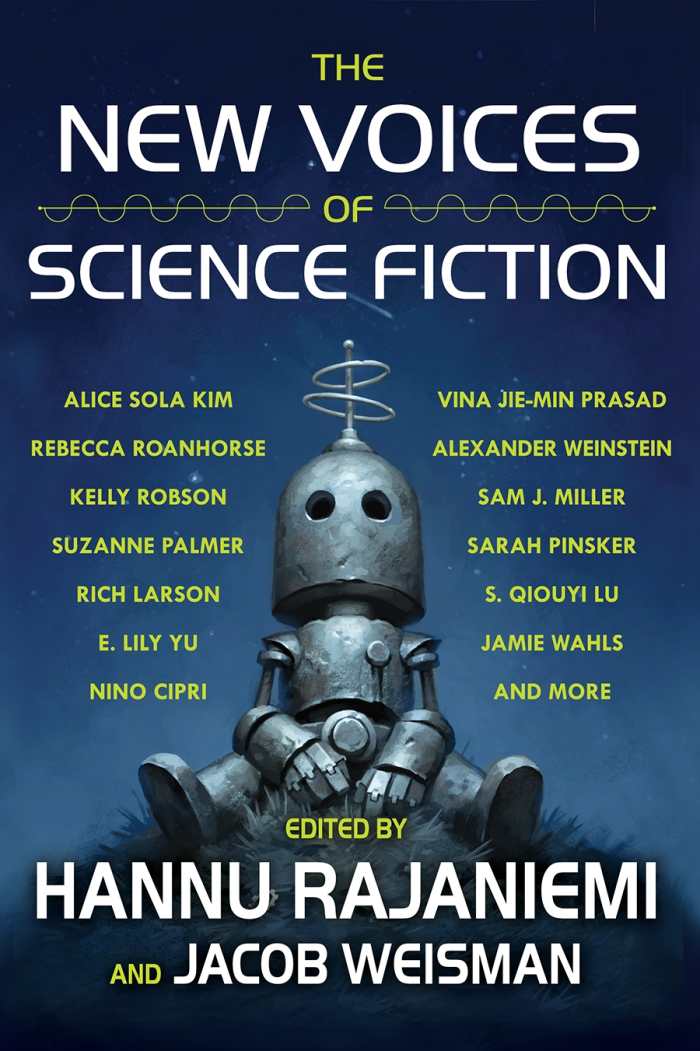
Hannu Rajaniemi, editor
Jacob Weisman, editor
Tachyon Publications
Softcover $16.95 (432pp)
978-1-61696-291-3
Buy: Local Bookstore (Bookshop), Amazon
From the moment Mary Shelley took up her pen and a dare, science fiction has inspired, challenged, and entertained audiences. That legacy is alive and thriving in Hannu Rajaniemi and Jacob Weisman’s curated collection The New Voices of Science Fiction. Covering the last five years of rising stars and new arrivals, the collection is a breath of fresh, interstellar air.
Familiar genre themes appear—sentient AI, genetic modifications, virtual reality—but challenge their expected courses. Rebecca Roanhorse’s “Welcome to Your Authentic Indian Experience(TM)” relays discomfort surrounding cultural appropriation and authenticity as tourists pay for virtual vision quests from spirit guides, who themselves feel pressure to be “the right kind of Indian.” A mutinous band of maintenance bots rebel against their ship’s orders to a benevolent end in Suzanne Palmer’s “The Secret Life of Bots,” a collection standout with its touching, original portrayal of friendship and camaraderie.
Some stories serve as cautionary tales, such as the dangers of becoming so engrossed in technology that we neglect our humanity evinced in Lettie Prell’s “The Need for Air.” Climate change forces people into floating cities in Sam J. Miller’s “Calved,” where a desperate father attempts to repair his strained relationship with his teenage son amid cultural tensions. Whether transfused through a post-apocalyptic New York City or a brittle, arctic planet, their warnings are prescient.
Though their far-flung worlds and speculative technologies are captivating, the stories are most striking in their quiet moments, where the universality of the human experience is allowed to breathe across time and space. Amal El-Mohtar’s “Madeleine” portrays a young woman taking part in an experimental drug trial, but the true tension lies in her internal gridlock at the intersection of love and grief. Such moments provide a poignant stillness in the collection’s breakneck sweep across the stars, tying even the most disparate of realms together with a common thread.
The New Voices of Science Fiction portends a bright future for science fiction and the universe at large.
DANIELLE BALLANTYNE (October 27, 2019)
Odsburg
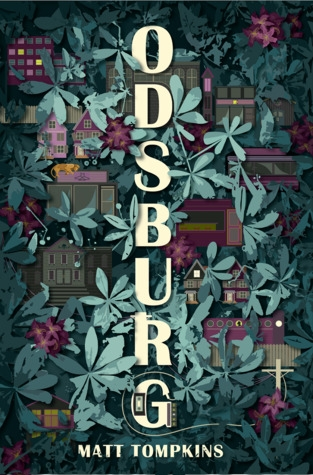
Matt Tompkins
Ooligan Press
Softcover $16.00 (202pp)
978-1-947845-08-4
Buy: Local Bookstore (Bookshop), Amazon
Matt Tompkins’s Odsburg is a unique kind of story—almost too novel to be considered a novel at all. Within it, self-taught researcher Wallace Jenkins-Ross sets out to document the town of Odsburg. The data he accumulates is tantamount to a reflection in a fun-house mirror: too outrageous to be taken seriously, yet too accurate a portrayal of the subject’s essence to be dismissed.
Wallace’s unorthodox methods consist of embedding himself within the community to examine its culture via the stories its residents tell. Some stories are revealed in a direct way, through conversations with residents or by being in the right place at the right time. Others make their way to him through official documents, notices on telephone poles, and scraps of paper tossed out of car windows.
Wallace is as meticulous as he is forthright in setting the scene for each story, disclosing any possible grounds for researcher bias. Honesty about his lack of objectivity makes him all the more trustworthy. Ultimately, his own story infiltrates the others.
As entertaining and hilarious as the tales are, their most astonishing feat resides within their capacity to compel belief in the inconceivable. The book’s historical documents, whether they are excerpts from the town charter or a timeworn diary, are faithful to the syntax and sentiments of their day. Recorded stories, like that of an English graduate student prone to referencing literature and mythology, reflect the teller’s experience of life too authentically to validate skepticism. Even authorial recountings, based upon stories that are surreptitiously observed, are too graphic to invite doubt.
Perhaps Matt Tompkins’s Odsburg is more grounded in theory than it seems; it comes close to proving Wallace’s hypothesis that a community’s stories are the purest measure of how its inhabitants live, work, play, and find meaning in their lives.
LINDA THORLAKSON (October 27, 2019)
Barbara Hodge
